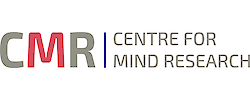Attention deficit hyperactivity disorder (ADHD) in adulthood
What is ADHD?
Attention Deficit Hyperactivity Disorder(ADHD) is characterized by difficulty with attention, impulsivity and physical or mental restlessness (hyperactivity). The disease belongs to the group of behavioral and emotional disorders beginning in childhood and adolescence. In children and adolescents a frequency of approximately 5% is stated, with boys being diagnosed approximately 4 times more frequently than girls. In up to 60% of cases ADHD remains complete or part-symptomatic in adulthood.
ADHD often occurs in the presence of other illnesses such as anxiety disorders, depression, sleep disorders or addictions. The diagnosis of ADHD is based on scientific and clinically sound investigation methods using international classification systems (ICD, DSM, Wender-Utah criteria).
What can be signs of ADHD?
- irritability / explosiveness
- Quick changing mood
- Increased emotional sensitivity
- Disorganized behavior
- Problems to uphold the attention
- Increased stress sensitivity
Causes
The exact origin of ADHD is currently unknown. It is assumed that genetic factors increase vulnerability to the development of ADHD symptoms. Environmental factors such as stress during pregnancy (maternal nicotine consumption) and birth complications (premature birth) can increase the risk of disease. On the biochemical level, a correlation between the ADHD symptoms and a disturbed signal transmission of the neurotransmitters dopamine and norepinephrine is probable.
Course
The hyperkinetic symptoms (motor restlessness) often diminish in the transition to adulthood. ADHD in adults is characterized by difficulties with attention, affect and impulse regulation.
How can ADHD be treated?
Psychotherapy and psychoeducation
For children with ADHD, parent training and counseling (including psychoeducation) has been proven to improve parenting behavior and understanding of the symptoms.
In adulthood, an individual therapy, usually (cognitive) behavioral therapy is used. Here psychoeducation (providing scientifically sound knowledge about the disease) is an important component too. Depending on options and age of the patient, relatives, partners, teachers and educators are involved in the treatment process.
Medical therapy
Considering age, severity of symptoms, efficacy of previous psychosocial / psychotherapeutic treatments, and patient / family preference, pharmacotherapeutic intervention may be considered. The current pharmacotherapeutic treatments for ADHD (for example, methylphenidate, amphetamine, atomoxetine) are based on the assumption of impaired signaling of the neurotransmitters dopamine and norepinephrine in various functional areas of the brain.
Further information on diagnostics and treatment options in our clinic can be found on the ADHS ambulance page.
Are you interested in one of our studies on ADHD? Information about current studies of the Clinic and Polyclinic for Psychiatry and Psychotherapy can be found here.















